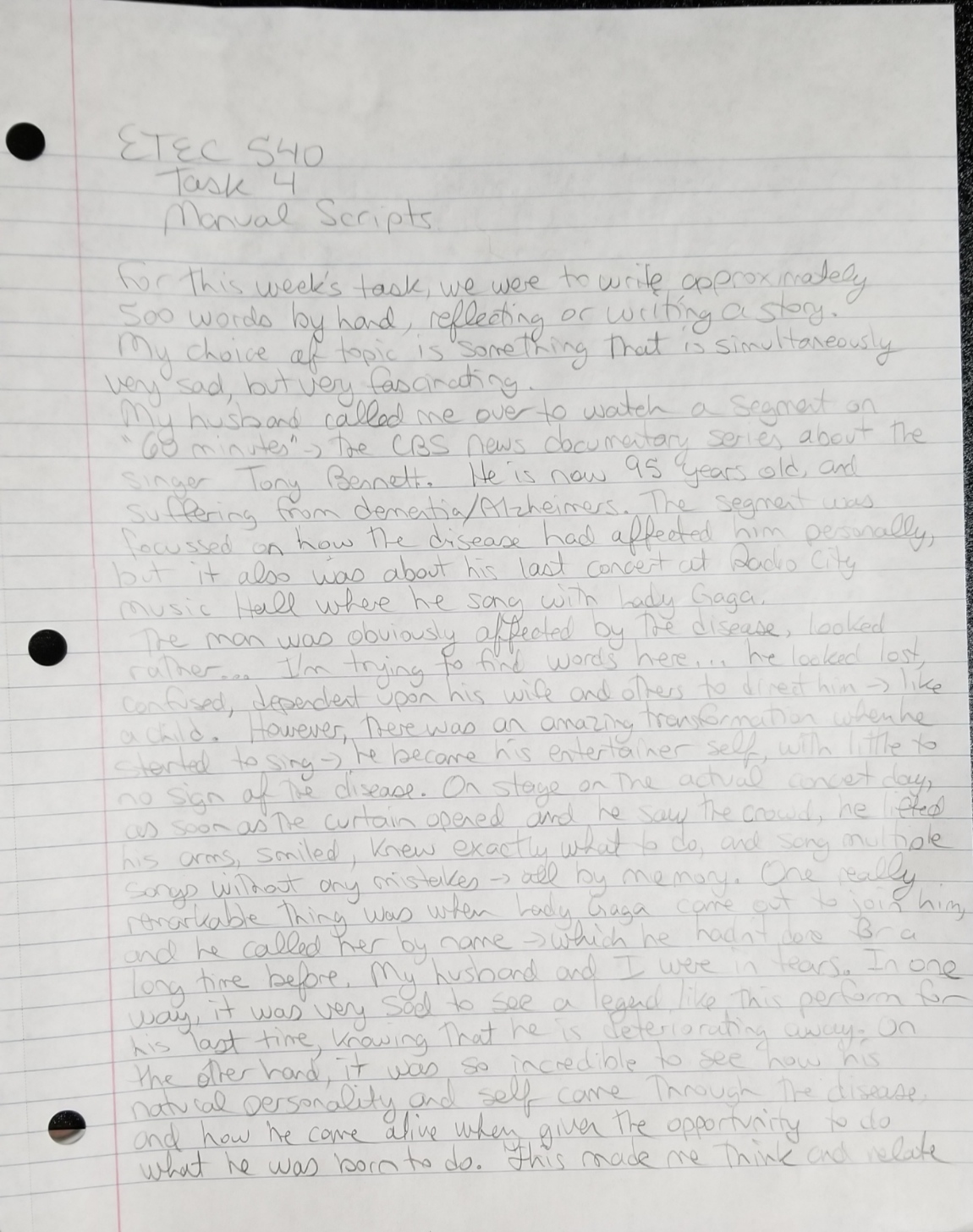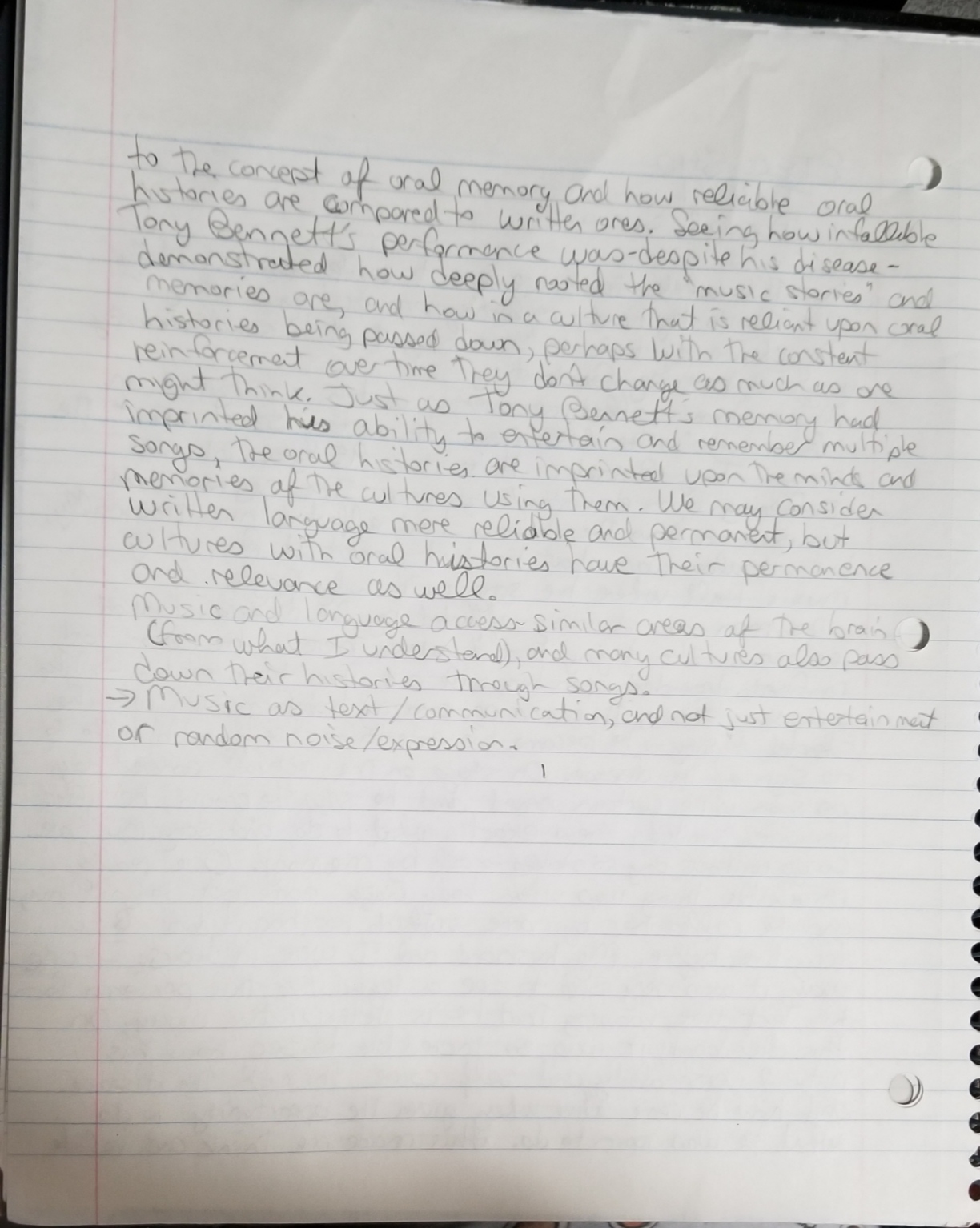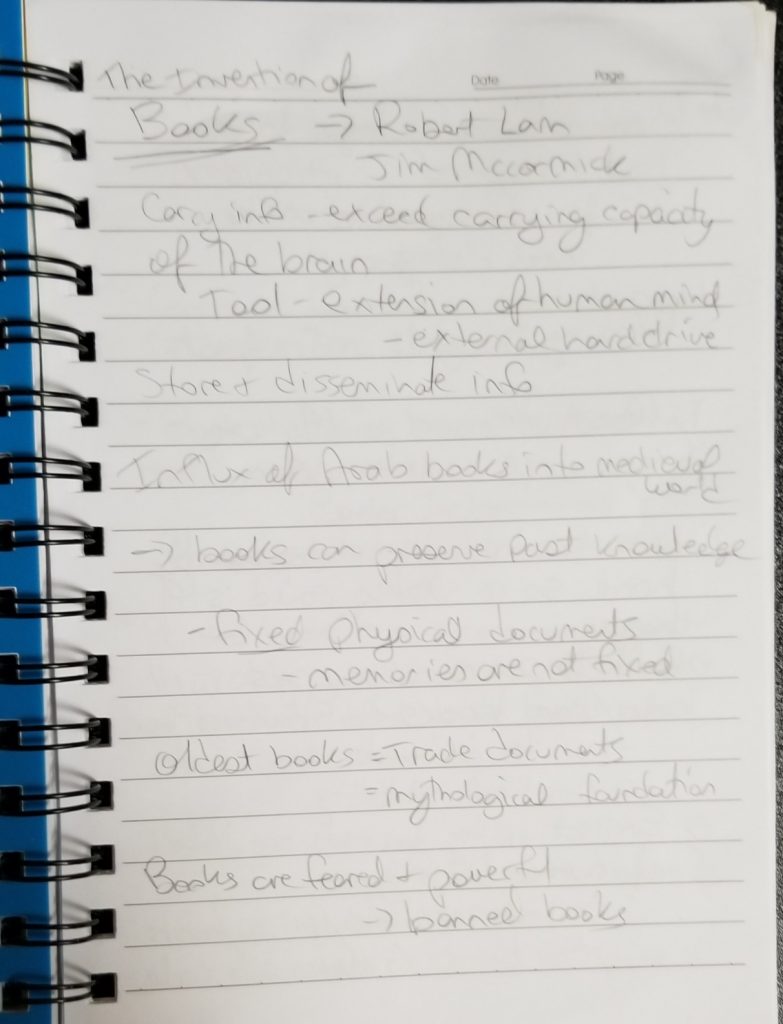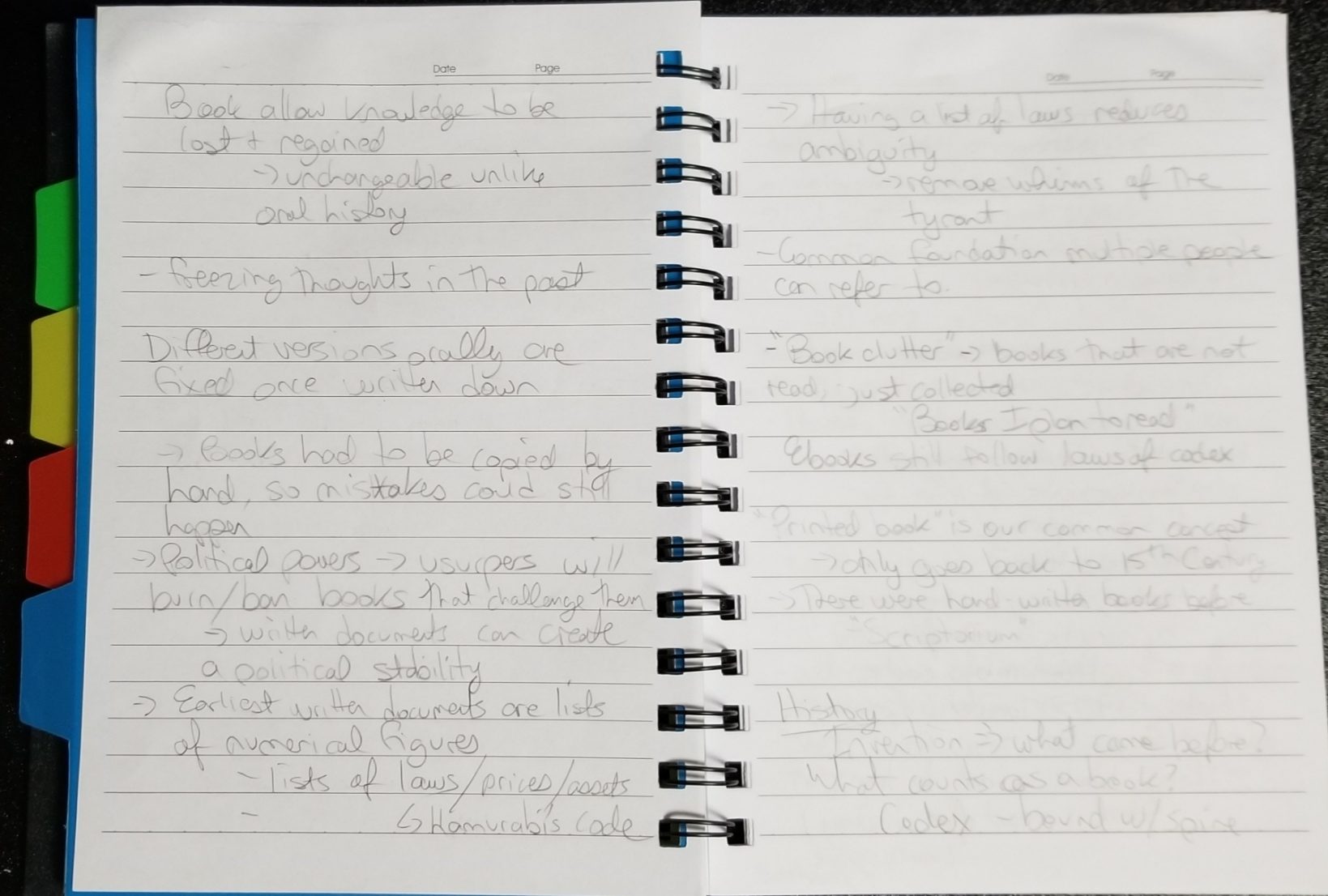For this week’s assignment, I chose to manually write about a segment I had watched on the TV show ’60 Minutes’ about the singer Tony Bennett, and his final stage performance with Lady Gaga. The unique thing about this performance is that despite the fact that he has progressive Alzheimer’s that is very noticeable in his daily life (he is very dependent upon his wife and others to help him), once on stage he completely transforms into his entertainment persona and there is no hint of the disease.
Here is a link to the segment for those interested Tony Bennett prepares to sing with Lady Gaga – CBS News
Here are my hand-written pages…


Do you normally write by hand or type? Did you find this task difficult or easy? Explain.
For most of my current correspondence, I tend to type – emails, text messages, assignments, etc. I find typing on the computer relatively easy because I have learned to type quite quickly (thank you to my grade 9 typing class), and the auto-correct feature makes accuracy easier. However, that being said, I also do a lot of handwriting. When doing assigned readings, I tend to take notes in the margins. For this week’s listening assignment with Robert Lam and Jim McCormack (I hope I spelled those correctly), I took copious notes because it helps me to retain information if there are multiple sensory inputs (oral, visual, tactile, etc). Here is an example of my listening notes…


I also used to keep a journal before I got married, and I would hand-write pages of random thoughts and reflections. My writings became less frequent after marriage due to less available time, but I still do try to write when I am able. Typing a journal is much faster, but less satisfying. Plus, I like stationary – I like the fancy books and writing utensils.
During my schooling years I did not have a computer (my first ‘tank’ of a computer came when I was in University in the early 90’s), so my assignments were mostly hand-written. I did have a typewriter, but I don’t recall using it very much because it was difficult to correct mistakes, and my typing accuracy was not very good at the time. I can imagine this must have been a similar difficulty for those writing on tablets or even scrolls. Mistakes were not an option then, and it must have been difficult, pain-staking work. Lam and McCormack mention that although information on written documents was generally fixed, there could still be errors and mistakes during copying.
What did you do when you made a mistake or wanted to change your writing? How did you edit your work? Did your choice of media play a part in how you edited your work?
Whenever I take notes or journal, I prefer to write with a pencil (as seen in my notes above). I tend to make multiple mistakes, or start a thought and then change my mind, so a good eraser is never far away. If I misspelled a word, or wanted to change a sentence, it was easy to erase and rewrite. Ink is more permanent and harder to correct, so one must be more deliberate and careful in their writing as mistakes are much harder to cover up. My choice of media definitely makes a difference in how I edit my work. If I am writing an assignment to hand in, it will be written in a word-processing program that will allow me to cut and paste and edit easily. Anything written by hand, even in pencil, is difficult to edit in terms of large passages, but a computer word-processor makes text editing and thought organization much easier. When I write by hand, I have to pre-think and organize my thoughts ahead of time, but typing allows my thoughts to flow more freely, and allows me to edit and organize as I go along.
What do you feel is the most significant difference between writing by hand and using mechanized forms of writing? Which do you prefer and why?
The most significant difference between writing by hand and using current mechanized forms of writing is the ease in editing and organizing ones thoughts. As mentioned before, my childhood was spent without computers or word-processors. The only mechanized form of writing was an electric typewriter that was unwieldy and difficult to neatly correct. In high-school, we were taught to write multiple drafts of essays and revise them before submitting a final product. With my computer word-processor, I no longer had to write multiple drafts on hard-copy but could now revise and edit on a screen which was much easier and saved countless sheets of paper. For the purpose of assignments and convenient communications I prefer typing and writing on a computer. However, for a more personal and individual sample of writing, I prefer hand-writing. Hand-written notes to my husband, or in a Christmas card seem more meaningful than a typed letter. The unique quality of each personal note is different from a mass-produced, printed informational letter.
With the advent of the printing press, multiple copies of the same text could be produced much more quickly, and without the potential for errors one would get with hand-copying. This would allow for much wider distribution of written material and the need for more literacy education. Once books were no longer the exclusive property of the higher echelon, it launched a very different societal and cultural power dynamic. Section 4.3 of this unit discusses how Innes (1950) writes about the socio-political impact of print technology. One thing I did find interesting is how Gutenberg aimed to maintain the look of a handwritten text while mechanizing the process of printing them (as shown in section 4.3 of this unit). Now, we have different type-fonts and go to great lengths to make a document look ‘business like’ rather than hand-written. The only occasion for a hand-written look might be for a decorative purpose such as a wedding.
On a closing note, I found Lam and McCormick’s discussion of ‘book clutter’ very interesting. I too have a great collection of books that I ‘intend to read’ at some point, and have always treasured a large library. However, having recently moved residences, I question the practicality of physical volumes of text and find myself turning increasingly to e-books and the easy portability they provide. It does lend an interesting question as to what future libraries will look like.